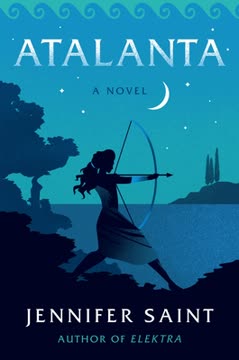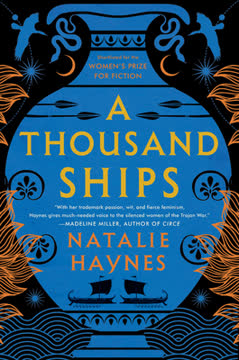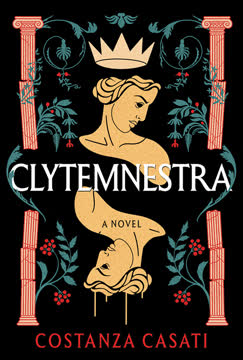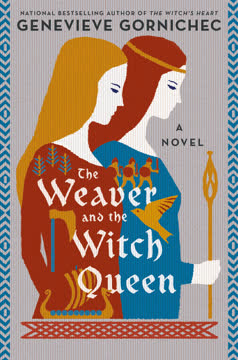Plot Summary
Abandoned on the Mountain
Atalanta's life begins with abandonment, her father the king discarding her on a mountainside for being born a girl. Alone and vulnerable, she is rescued not by human hands but by a mother bear, who nurtures her as one of her own. This primal, wordless love forges Atalanta's earliest sense of belonging and survival. The wild becomes her first home, and the lessons of tooth and claw, of hunger and kinship, shape her spirit. The world is indifferent, yet in its indifference, Atalanta finds a fierce will to live. Her story is marked from the start by rejection, but also by the possibility of transformation—of finding family and strength in unexpected places.
Raised by Wildness
Growing up among bears, Atalanta learns to fight, hunt, and endure. The forest is both sanctuary and crucible, teaching her the rules of survival and the beauty of interconnected life. Seasons pass, and with them, the innocence of childhood. When the bear family disperses, Atalanta faces her first heartbreak—the loss of her only family. Alone, she wanders the woods, absorbing the rhythms of nature, the dangers of predators, and the subtle wisdom of the land. This solitude is not emptiness but a forging of self, a preparation for the world beyond, where she will need every lesson the wild has given her.
Artemis' Chosen Daughter
Atalanta's fate changes when Artemis, goddess of the hunt, finds her. Taken to a sacred grotto, she is raised among nymphs, learning language, craft, and reverence for the gods. Artemis becomes her mentor and protector, instilling in her a sense of purpose and belonging. The goddess's world is one of female autonomy, discipline, and devotion—a stark contrast to the world of men. Atalanta thrives, mastering the bow and the chase, eager to prove herself worthy of Artemis's favor. Yet, the goddess's love is conditional, and the rules of this new family are as strict as those of the wild.
Sisterhood and Loss
Among the nymphs, Atalanta finds camaraderie and joy, but also witnesses the fragility of their sanctuary. The outside world intrudes—hunters, river gods, and the ever-present threat of male violence. When her closest friend Calisto is transformed and exiled after a violation, Atalanta learns the cost of breaking Artemis's vows. The pain of loss is sharpened by the realization that safety is always precarious, and that the bonds of sisterhood can be severed by forces beyond their control. Atalanta's resolve hardens: she will be strong enough to protect herself and those she loves.
The Call to Adventure
As Atalanta matures, her prowess draws Artemis's attention. The goddess urges her to join the Argonauts—a band of heroes seeking the Golden Fleece. It is a chance to prove herself beyond the forest, to earn glory not just for herself but for Artemis. The journey is daunting: a mortal woman among men, venturing into unknown lands and perils. Atalanta accepts, driven by ambition and the desire to define her own fate. She leaves behind the only home she has known, stepping into a world that will test her strength, loyalty, and identity.
Among Heroes and Argonauts
Atalanta's arrival among the Argonauts is met with skepticism and hostility. She must fight for her place, outpace and outshoot the men, and endure their doubts and desires. Bonds form—especially with Meleager, whose respect and affection grow into something deeper. The voyage is a crucible: they face monsters, hostile lands, and the temptations of comfort and distraction. Atalanta's skills save the crew more than once, but her presence also stirs jealousy and conflict. She learns that heroism is as much about endurance and integrity as it is about feats of strength.
Trials of Lemnos and Beyond
The Argonauts' journey brings them to Lemnos, an island of women who have slain their men. Here, Atalanta confronts the complexities of female power and vengeance, and the dangers of desire. The crew is seduced by comfort, risking their quest. Atalanta resists, focused on the mission, but the episode leaves her wary of both men and women's capacity for violence. Further trials—giants, harpies, and deadly kings—test the Argonauts' unity and Atalanta's resolve. Each victory is costly, and the line between hero and monster blurs.
Monsters, Magic, and Men
As the Argonauts near their goal, the dangers intensify. They face magical obstacles—clashing rocks, fire-breathing bulls, and an army of the dead. Atalanta witnesses the power of Medea, a sorceress whose love for Jason changes the course of the quest. The Golden Fleece is won not by brute force, but by cunning, magic, and betrayal. Atalanta's own heart is tested as her bond with Meleager deepens, and the lines between loyalty, love, and ambition become tangled. The price of glory is steep, and not all wounds are visible.
The Price of Glory
The return journey is marked by loss and disillusionment. Atalanta is wounded, both physically and emotionally. The Argonauts' triumph is tainted by bloodshed and the unraveling of old bonds. Meleager's fate is sealed by family tragedy and the curse of heroism. Atalanta, now carrying his child, finds herself exiled from Artemis's sanctuary—punished for breaking the goddess's vow of chastity. The cost of adventure is not just personal pain, but the loss of belonging and the burden of choices that cannot be undone.
Betrayal and Exile
Cast out from the only homes she has known, Atalanta must forge a new life on the margins. She gives birth to her son, Partenopeus, and entrusts him to humble caretakers, determined not to repeat her father's cruelty. The wild is no longer a place of freedom, but of exile. Atalanta's identity as hero, daughter, and lover is stripped away, leaving her to redefine herself as a mother and survivor. The world's indifference is now a source of pain, but also of possibility.
The Calydonian Boar Hunt
Summoned to Calydon to hunt a monstrous boar sent by Artemis, Atalanta faces both external danger and the scorn of men who resent her prowess. She is the first to wound the beast, but her victory sparks jealousy and violence. Meleager's defense of her honor leads to tragedy, as he kills his uncles and is cursed by his own mother. The hunt becomes a microcosm of Atalanta's life: a struggle for recognition, a battle against those who would deny her place, and a lesson in the cost of standing apart.
A Mother's Dilemma
With Meleager dead and her own future uncertain, Atalanta must choose between the safety of obscurity and the risk of claiming her heritage. Her father, the king, offers her recognition—at a price. Atalanta is forced into a deadly race for marriage, her autonomy once again threatened by the ambitions of men. She outpaces every suitor, but the contest becomes a trap, and the gods themselves intervene. The question of what legacy she will leave for her son, and what freedom she can claim for herself, becomes paramount.
Return to the King
Atalanta's return to her father's court is both triumph and ordeal. She is recognized for her deeds, but her father demands she marry, offering her as a prize to any man who can outrun her. The race is a spectacle of male pride and female defiance. Atalanta's speed is unmatched, but the contest is rigged by divine intervention. The cost of victory is no longer just her own fate, but the lives and hopes of others.
The Deadly Race
As suitors fall, Atalanta's resolve is tested by Hipomenes, who, aided by Aphrodite's golden apples, wins the race not by strength but by understanding her heart. The victory is bittersweet: Atalanta must choose between the freedom she has fought for and the love she cannot deny. The gods' meddling is both curse and blessing, and Atalanta's story becomes one of agency reclaimed in the face of destiny.
Apples of Fate
The marriage of Atalanta and Hipomenes is marked by passion and defiance, but also by the shadow of divine retribution. Their union, forged in rebellion against both mortal and divine expectations, is consummated in a sacred grove—an act that provokes the wrath of the gods. Transformation follows: the lovers are turned into lions, forever exiled from human society but united in wild freedom. Atalanta's journey comes full circle, from abandoned child to wild creature, from exile to a new kind of belonging.
The Choice of Freedom
As a lioness, Atalanta finds a new form of liberation. No longer bound by the rules of gods or men, she runs with Hipomenes through the forests and mountains, watching over her son from afar. Her story is no longer one of seeking approval or place, but of claiming her own nature. The wild, once a place of exile, is now home again—a space where she can be wholly herself, untamed and unashamed.
Transformation and Release
Atalanta's tale ends not with marriage or death, but with transformation and release. She is remembered not for her conformity, but for her defiance, her speed, and her wild heart. Her legacy endures in the stories told by those who witnessed her run, in the strength of her son, and in the freedom she claimed for herself. The gods may shape fate, but Atalanta's spirit remains unconquered—a beacon for all who seek to live on their own terms.
Characters
Atalanta
Atalanta is defined by her resilience, independence, and longing for belonging. Abandoned at birth, she is shaped by the wild, then by the strict sisterhood of Artemis. Her journey is one of constant negotiation between the expectations of gods, men, and her own desires. She is both compassionate and uncompromising, capable of deep love but unwilling to surrender her autonomy. Her relationships—with Artemis, Meleager, and Hipomenes—reveal her vulnerability and her strength. Atalanta's arc is one of self-discovery: from outcast to legend, from daughter to mother, from human to lioness. Her refusal to be defined by others, even at great personal cost, is the heart of her story.
Artemis
Artemis is both savior and judge, offering Atalanta sanctuary and purpose but demanding strict adherence to her code. She embodies female autonomy and the dangers of transgression. Her love is conditional, her punishments severe. Artemis's relationship with Atalanta is complex: maternal, sisterly, and at times adversarial. She represents the ideal of female strength, but also the limitations of rigid purity. Her eventual forgiveness, after Atalanta's transformation, suggests a recognition of the need for change and acceptance.
Meleager
Meleager is Atalanta's equal in courage and skill, and their bond is forged in mutual respect and shared danger. His love for Atalanta is sincere, but ultimately doomed by the violence and pride of his family. Meleager's defense of Atalanta during the Calydonian boar hunt leads to his downfall, a victim of both fate and the toxic expectations of heroism. His legacy endures in their son, and in Atalanta's memory—a reminder of love's power and its limits.
Hipomenes (Hippomenes)
Hipomenes is marked by humility, intelligence, and steadfast love. Unlike other suitors, he seeks not to conquer Atalanta but to understand and support her. His victory in the race is achieved through empathy and divine aid, not brute force. Hipomenes's willingness to risk his life for Atalanta's freedom, and his acceptance of their shared transformation, make him a rare figure of masculine vulnerability and partnership. His love is both a gift and a curse, entwined with the will of the gods.
Calisto
Calisto's fate—seduced and exiled after breaking Artemis's vow—serves as a warning to Atalanta. Her transformation into a bear, and eventual loss, underscores the dangers of desire and the fragility of female community. Calisto's story haunts Atalanta, shaping her choices and her fears about love and loyalty.
Medea
Medea is both ally and mirror to Atalanta: a woman who wields power in a world hostile to female agency. Her love for Jason drives the success of the Argonauts, but also brings destruction. Medea's choices—betraying her family, aiding the heroes, and ultimately committing murder—highlight the costs of passion and the dangers of being used by men and gods alike. She is a figure of both admiration and warning.
Jason
Jason is the nominal leader of the Argonauts, but his success depends on the skills and sacrifices of others—especially Atalanta and Medea. He is charismatic but indecisive, driven by the need for recognition and the approval of the gods. Jason's inability to honor his promises, and his reliance on others, reveal the hollowness of traditional heroism.
Yaso (Iasus)
Atalanta's biological father, Yaso, is a king obsessed with legacy and power. His abandonment of Atalanta, and later his attempt to use her for political gain, reflect the patriarchal values she resists. Yaso's recognition of Atalanta is transactional, and his insistence on her marriage is another form of control. He is a symbol of the world's refusal to accept female autonomy.
Partenopeus
The son of Atalanta and Meleager, Partenopeus represents both the burden and the promise of the future. Raised by humble caretakers, he is watched over by his mother from afar. His existence is a testament to Atalanta's refusal to repeat the cruelty of her own parents, and to her hope that the next generation might be freer.
The Argonauts (Heracles, Orpheus, Castor, Pollux, etc.)
The Argonauts are a tapestry of heroism, ego, and vulnerability. They challenge and support Atalanta, but also embody the limitations of traditional masculinity. Their stories intersect with hers, offering both camaraderie and conflict. Through them, Atalanta learns the value of her own strength, and the cost of seeking approval from those who cannot truly see her.
Plot Devices
Mythic Structure and Feminist Reimagining
The novel employs the structure of the hero's journey, but subverts it by centering a female protagonist who must navigate not only monsters and quests, but the expectations and limitations imposed by gods and men. The use of transformation—literal and metaphorical—serves as both punishment and liberation. Foreshadowing is woven through prophecies, divine warnings, and the recurring motif of abandonment and return. The narrative is cyclical: Atalanta's journey begins and ends in the wild, but her understanding of freedom and selfhood is transformed. The interplay of mortal and divine, love and autonomy, shapes every choice and consequence.
Analysis
Atalanta by Jennifer Saint is a powerful reimagining of Greek myth, centering a heroine who refuses to be defined by the limitations of her birth, gender, or the expectations of gods and men. The novel interrogates the nature of heroism, the cost of autonomy, and the meaning of belonging. Atalanta's journey is both epic and intimate: she battles monsters and navigates legendary quests, but her greatest struggles are with love, loss, and the search for self. The story critiques patriarchal structures—whether embodied by her father, the Argonauts, or even Artemis—and explores the tension between community and individuality. Atalanta's ultimate transformation into a lioness, exiled but free, is both a punishment and a release: she claims her own wildness, her own story, and her own legacy. The novel's lesson is clear: true heroism lies not in conquest or conformity, but in the courage to live—and love—on one's own terms.
Last updated:
Review Summary
Atalanta is a Greek mythology retelling focused on the titular heroine's journey. Readers praised Saint's beautiful prose and feminist themes, appreciating Atalanta's strength and the exploration of women's roles in ancient society. Many found the story engaging, especially the Argonauts' quest and Calydonian boar hunt. However, some critics felt the pacing was inconsistent and character development lacking. Overall, the book received mixed reviews, with fans of Greek retellings generally enjoying Saint's take on Atalanta's lesser-known myth.








